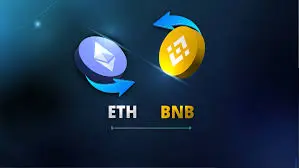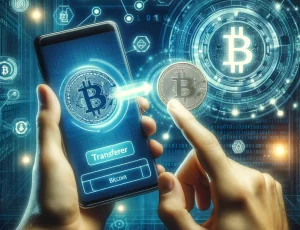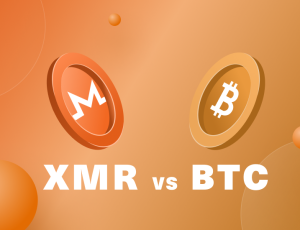Exchange ETH to BNB has become increasingly popular as both cryptocurrencies play significant roles in the digital asset ecosystem. This guide will walk you through the process, explaining various methods and important considerations for a successful exchange.
Understanding the Cryptocurrencies
Ethereum (ETH)
- Launched in 2015 by Vitalik Buterin
- Second-largest cryptocurrency by market cap
- Powers smart contracts and decentralized applications
- Uses Proof of Stake consensus mechanism
Binance Coin (BNB)
- Created in 2017 by Binance
- Native token of the Binance ecosystem
- Powers the BNB Chain (formerly BSC)
- Used for reduced trading fees on Binance
Comparison Table: ETH vs BNB
| Feature | Ethereum (ETH) | Binance Coin (BNB) |
|---|---|---|
| Launch Date | 2015 | 2017 |
| Consensus | Proof of Stake | Proof of Staked Authority |
| Block Time | ~12 seconds | ~3 seconds |
| Max Supply | No limit | ~160 million |
| Primary Use | Smart Contracts & DeFi | Binance Ecosystem |
| Network | Ethereum | BNB Chain |
| Transaction Cost | Medium to High | Very Low |
Exchange Methods
1. Centralized Exchanges (CEX)
Primary Option: Binance
- Largest cryptocurrency exchange
- Best liquidity for ETH/BNB pair
- Lower fees when using BNB
- Advanced trading features
Other Major Exchanges:
- KuCoin
- Gate.io
- OKX
- Huobi
Advantages:
- High liquidity
- User-friendly interface
- Multiple trading pairs
- Reliable support
- Advanced trading tools
Disadvantages:
- Requires KYC verification
- Platform controls funds
- Withdrawal limits
- Geographic restrictions
2. Decentralized Exchanges (DEX)
Popular DEX Options:
- PancakeSwap
- 1inch
- UniSwap
- SushiSwap
Advantages:
- No KYC required
- Full custody of funds
- Privacy maintained
- Worldwide access
Disadvantages:
- Higher fees possible
- More complex interface
- Lower liquidity
- Technical knowledge needed
3. Cross-Chain Bridges
Recommended Bridges:
- Binance Bridge
- MultiChain
- Celer Network
- Orbit Bridge
Advantages:
- Direct cross-chain transfers
- No intermediate steps
- Often cheaper fees
- Maintains decentralization
Disadvantages:
- Technical complexity
- Smart contract risks
- Variable processing times
- Bridge-specific risks
Step-by-Step Exchange Process
Using Binance Exchange:
- Account Setup
- Create Binance account
- Complete KYC verification
- Enable 2FA security
- Set up payment methods
- Deposit ETH
- Get ETH deposit address
- Send ETH from wallet
- Wait for confirmations
- Verify deposit receipt
- Exchange to BNB
- Navigate to ETH/BNB pair
- Choose order type
- Enter exchange amount
- Review details
- Confirm transaction
- Withdraw BNB
- Select withdrawal network
- Enter withdrawal address
- Confirm withdrawal
- Store BNB securely
Fee Structure
Trading Fees
| Platform Type | Maker Fee | Taker Fee | Notes |
|---|---|---|---|
| Binance | 0.1% | 0.1% | 25% discount with BNB |
| Other CEX | 0.1-0.4% | 0.1-0.4% | Varies by platform |
| DEX | 0.2-1% | 0.2-1% | Plus gas fees |
Network Fees
| Network | Fee Range | Speed |
|---|---|---|
| Ethereum | $2-$50+ | 2-5 minutes |
| BNB Chain | $0.02-$0.20 | 3-5 seconds |
Security Considerations
Essential Security Measures:
- Account Security
- Strong password usage
- 2FA activation
- Anti-phishing code
- IP whitelisting
- Regular security review
- Transaction Security
- Double-check addresses
- Verify network selection
- Start with small tests
- Monitor transactions
- Keep records
- Wallet Security
- Use hardware wallets
- Backup private keys
- Update software regularly
- Use trusted networks
- Enable additional security features
Market Considerations
Before Exchanging:
- Market Analysis
- Check current rates
- Review price charts
- Analyze market depth
- Monitor news
- Consider timing
- Platform Selection
- Compare exchange rates
- Review fee structures
- Check platform reliability
- Verify supported networks
- Consider geographical restrictions
Recommended Wallets
For ETH:
- MetaMask
- Trust Wallet
- Ledger
- Trezor
- MyEtherWallet
For BNB:
- Trust Wallet
- MetaMask (with BNB Chain)
- Binance Chain Wallet
- SafePal
- Math Wallet
Important Resources
Price Tracking:
- CoinGecko: https://www.coingecko.com
- CoinMarketCap: https://coinmarketcap.com
- Binance Price Charts: https://www.binance.com/en/trade
Network Explorers:
- Etherscan: https://etherscan.io
- BscScan: https://bscscan.com
Educational Resources:
- Binance Academy: https://academy.binance.com
- Ethereum.org: https://ethereum.org
Best Practices
Before Exchange:
- Research
- Verify exchange reputation
- Check current market rates
- Review fee structures
- Understand withdrawal limits
- Read platform reviews
- Preparation
- Ensure sufficient funds
- Verify wallet compatibility
- Check network status
- Prepare backup options
- Document process
During Exchange:
- Verification
- Double-check addresses
- Verify network selections
- Confirm exchange rates
- Review all fees
- Save transaction IDs
- Monitoring
- Watch transaction status
- Keep platform window open
- Monitor email notifications
- Check wallet balances
- Record important details
After Exchange:
- Confirmation
- Verify receipt of funds
- Check transaction records
- Store BNB securely
- Update portfolio tracker
- Document exchange details
Regulatory Considerations
Compliance Requirements:
- Keep transaction records
- Track exchange rates
- Document fees paid
- Consider tax implications
- Follow local regulations
Tax Implications:
- Record acquisition costs
- Track exchange rates
- Calculate gains/losses
- Maintain documentation
- Consult tax professionals
Troubleshooting Common Issues
Common Problems:
- Transaction Delays
- Check network status
- Verify gas fees
- Contact support
- Monitor explorers
- Wait for confirmations
- Failed Transactions
- Check error messages
- Verify sufficient funds
- Confirm network selection
- Review fee settings
- Try smaller amounts
Conclusion
Exchanging ETH to BNB requires careful consideration of various factors, including platform choice, security measures, and market conditions. Whether using centralized exchanges, DEXs, or cross-chain bridges, following proper security protocols and understanding the associated fees and risks is crucial.
Remember that cryptocurrency markets are volatile, and exchange rates can fluctuate rapidly. Always verify current rates and fees before proceeding with any exchange. Start with small test transactions and never exchange more than you can afford to lose.
By following this guide and implementing the recommended security measures, you can safely and efficiently exchange your ETH to BNB while minimizing risks and maximizing value.
Always stay informed about the latest developments in both the Ethereum and Binance ecosystems, as changes in either network can affect the exchange process and associated costs.



